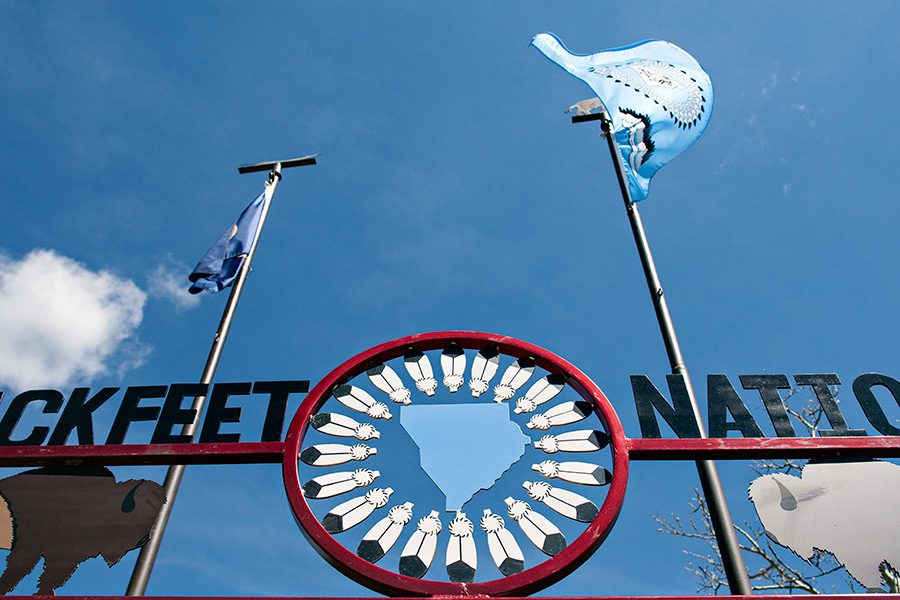Three years after its government fell into shambles, the Blackfeet Nation is on the verge of constitutional reforms to ensure it never happens again.
Tribal council member Joe McKay, one of the organizers of the grassroots effort to rewrite the Blackfeet Constitution, said the group recently drafted an outline of what the new government may look like. He said the group, which meets weekly in Browning, hopes to put the finishing touches on it in the coming month and present it to the Blackfeet Tribal Business Council before July.
“We still have some work to do, but we plan on accelerating the effort,” he said.
Under the revised constitution, the nine-member tribal council would be abolished and replaced with a part-time tribal legislature and a full-time executive team. There would also be a separate judicial branch.
One of the biggest criticisms of the current tribal government, as established by the Wheeler-Howard Act of 1934, is that there is no separation of powers and the council has the ability to control everything.
McKay said the proposed government system would have a 13-person legislature, with six representatives from the Browning area and seven from the outlying areas, to ensure that the reservation’s smaller communities have a voice within the government. The representatives will be elected by their constituents as opposed to now, where everyone on the reservation can vote for who represents each town.
The legislature would meet at least twice a year and only be paid for the time it is in session.
Meanwhile an executive team consisting of a chairman and vice chairman would oversee the day-to-day operations of the tribe. The executive team would run together as a ticket.
McKay said he hopes the constitutional reform group will present the proposal to the tribal council before it leaves office in early July. A tribal council election is set for June 28 and four seats are up for grabs. The new council will be seated during North American Indian Days in early July.
The tribal council will have a chance to review the proposed constitutional reforms and vote on whether it should be submitted to the Bureau of Indian Affairs for a formal review. The BIA will then ensure the proposed constitution does not violate federal law before submitting it to tribal members for a vote. McKay said all 13,000 registered members of the Blackfeet tribe would be allowed to vote, regardless of whether they live on the Blackfeet Reservation.
McKay said the last time the entire membership voted was in 1998 when it approved staggered terms on the tribal council.
The Blackfeet would be the second tribe in Montana to drastically overhaul its government. McKay said less than a dozen tribes have adopted new constitutions across the United States in recent years. The Blackfeet first tried to rewrite its constitution in the 1940s and later in the 1970s and early 2000s, but those efforts fizzled out.
The recent push to reform the tribal government on the Blackfeet Reservation stems from the dysfunction on the tribal council in 2012 and 2013, when the council split into two different factions. Because of the split, tribal employees were unable to get paid for weeks at a time and the government frequently shut down.
